|
Books Should Be Free Loyal Books Free Public Domain Audiobooks & eBook Downloads |
|
|
Books Should Be Free Loyal Books Free Public Domain Audiobooks & eBook Downloads |
|
Top Authors |
|---|
|
Book type:
Sort by:
|
By: Andy Adams (1859-1935) | |
|---|---|
 A Texas Matchmaker
A Texas Matchmaker
| |
 Wells Brothers The Young Cattle Kings
Wells Brothers The Young Cattle Kings
| |
By: Gelett Burgess (1866-1951) | |
|---|---|
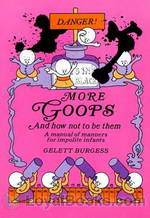 More Goops and How Not to Be Them
More Goops and How Not to Be Them
Deep in the heart of every parent is the wish, the desire, to have other adults tell us, in an unsolicited way, just how very polite one’s child is! This perhaps was even more the case in 1903, when Gelett Burgess produced his second book on the Goops. With entertaining cartoons – cariacatures of misbehaving children – he described many different breaches of tact and good manners. Burgess wrote several books of poetry on the Goops, each poem describing some significant way in which an unthoughtful or unkind child could offend polite society and often offering the hope that the listener would never behave that way... | |
 The Goop Directory
The Goop Directory
A funny collection of poems about bad children. | |
 Find the Woman
Find the Woman
Who was Belle Charmion? If you really care to know, as John Fenton did, you must go with him on his quest, hither and yon over New York, into strange houses and through side streets at midnight, a shuttle in the secret loom of fate, weaving in and out through many-colored threads, until the pattern of the mystery is made clear. For the warp of his strange, adventurous career – love and beauty and diamonds. For the woof – some few cross currents of crime and misery. There, in brief, is the web of his drama. (From Prologue) | |
 Are You a Bromide? The Sulphitic Theory Expounded and Exemplified According to the Most Recent Researches into the Psychology of Boredom Including Many Well-Known Bromidioms Now in Use
Are You a Bromide? The Sulphitic Theory Expounded and Exemplified According to the Most Recent Researches into the Psychology of Boredom Including Many Well-Known Bromidioms Now in Use
| |
 The Rubaiyat of Omar Cayenne
The Rubaiyat of Omar Cayenne
| |
By: Walter de la Mare | |
|---|---|
 Ophelia
Ophelia
Ophelia, poem of the week for February 25, 2007; read here by twelve of our readers. Ophelia loved Hamlet, was repulsed by him, and went insane. She drowned in a stream, gathering flowers of remembrance. This is one of a number of poems that de la Mare wrote about Shakespeare characters. | |
By: Walter De la Mare (1873-1956) | |
|---|---|
 Songs of Childhood
Songs of Childhood
| |
 The Listeners and Other Poems
The Listeners and Other Poems
| |
 Return (de la Mare version)
Return (de la Mare version)
A story of psychological horror, The Return explores ideas of identity, love, and alienation. Arthur grapples with the reactions of his family and community, and his own sanity, when he experiences a sudden and mysterious "transformation". ( | |
 Down-Adown-Derry A Book of Fairy Poems
Down-Adown-Derry A Book of Fairy Poems
| |
 Collected Poems 1901-1918 in Two Volumes Volume II.
Collected Poems 1901-1918 in Two Volumes Volume II.
| |
 Henry Brocken His Travels and Adventures in the Rich, Strange, Scarce-Imaginable Regions of Romance
Henry Brocken His Travels and Adventures in the Rich, Strange, Scarce-Imaginable Regions of Romance
| |
By: Oliver Goldsmith (1728/1730-1774) | |
|---|---|
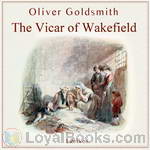 The Vicar of Wakefield
The Vicar of Wakefield
Published in 1766, The Vicar of Wakefield follows the turbulent shift in the fortune and status of the Primrose family, as they must endure various setbacks that threaten their ultimate wellbeing and prosperity. Focusing on themes including family, prudence, resilience, religion, deception, marriage, and social status, the classic is regarded as Goldsmith’s most notable literary achievement. The novel centers on Dr. Charles Primrose, a benevolent and naive vicar, who together with his wife and six children lives an idyllic and comfortable life in the affluent town of Wakefield, owing their position to a smart investment... | |
 The Life of Richard Nash, Esq., Late Master of the Ceremonies at Bath
The Life of Richard Nash, Esq., Late Master of the Ceremonies at Bath
Beau Nash (1674–1762), born Richard Nash, was a celebrated dandy and leader of fashion in 18th-century Britain. He is best remembered as the Master of Ceremonies at the spa town of Bath. (Wikipedia)This, the best of Goldsmith's Biographies, was published the year after Nash's death. It was at once popular, and went through two editions in the same year in which it was published. To the second edition (it never reached a third), Goldsmith made many important additions. Yet strange to say none of these have been attended to by the editors of his Works... | |
 She Stoops to Conquer
She Stoops to Conquer
In She Stoops to Conquer, or The Mistakes of a Night, a young lady pretends to be a servant in order to win the notice of a young man who is painfully shy around women of his own class. Hilarious misadventures and mayhem ensue before matters are neatly wrapped up at the end. This play, one of the great English comedies, was first performed in 1773 and continues to be very popular with audiences today. | |
 Pinnock's improved edition of Dr. Goldsmith's History of Rome
Pinnock's improved edition of Dr. Goldsmith's History of Rome
| |
 The Complete Poetical Works of Oliver Goldsmith
The Complete Poetical Works of Oliver Goldsmith
| |
 An Elegy on the Death of a Mad Dog
An Elegy on the Death of a Mad Dog
| |
 An Elegy on the Glory of Her Sex, Mrs. Mary Blaize
An Elegy on the Glory of Her Sex, Mrs. Mary Blaize
| |
By: Douglas William Jerrold (1803-1857) | |
|---|---|
 Mrs. Caudle's Curtain Lectures
Mrs. Caudle's Curtain Lectures
First serialized in Punch magazine in 1845, and officially published in book form in 1846, Mrs. Caudle's Curtain Lectures presents a collection of 37 lectures delivered by Mrs. Caudle to her husband as a means of reproach for his trivial infractions. Also, the author marvelously incorporates typical elements responsible for disagreements between spouses including the antipathetic mother-in-law, the ne’er-do-well friends, and the jealous outbursts. Jerrold’s charming piece of satire introduces the Victorian married couple, Mr... | |
By: L. T. Meade (1854-1914) | |
|---|---|
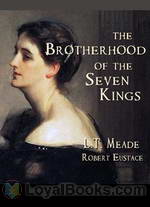 The Brotherhood of the Seven Kings
The Brotherhood of the Seven Kings
“That a secret society, based upon the lines of similar institutions so notorious on the Continent during the last century, could ever have existed in the London of our day may seem impossible. Such a society, however, not only did exist, but through the instrumentality of a woman of unparalleled capacity and genius, obtained a firm footing. A century ago the Brotherhood of the Seven Kings was a name hardly whispered without horror and fear in Italy, and now, by the fascinations and influence of one woman, it began to accomplish fresh deeds of unparalleled daring and subtlety in London... | |
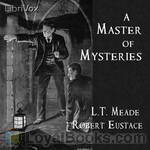 A Master of Mysteries
A Master of Mysteries
“It so happened that the circumstances of fate allowed me to follow my own bent in the choice of a profession. From my earliest youth the weird, the mysterious had an irresistible fascination for me. Having private means, I resolved to follow my unique inclinations, and I am now well known to all my friends as a professional exposer of ghosts, and one who can clear away the mysteries of most haunted houses….I propose in these pages to relate the histories of certain queer events, enveloped at first in mystery, and apparently dark with portent, but, nevertheless, when grappled with in the true spirit of science, capable of explanation... | |
By: Mrs. L. T. Meade (1854-1914) | |
|---|---|
 The Rebel of the School
The Rebel of the School
Kathleen O’Hara is a young pretty girl sent to school in England from Ireland by her father to get a good education, but Kathleen has other ideas. She quickly become friends with the girls of the school who don’t pay for their education and in turn these girls consider Kathleen to be their Queen. What trouble will Kathleen and her friends get into? And what will the school do with the naughty, “Rebel of the School?” | |
By: Agnes Ethel Conway (1885-1950) | |
|---|---|
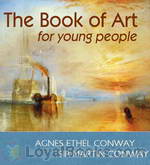 The Book of Art for Young People
The Book of Art for Young People
This is a charming book on Art History for children (and everyone else). Each chapter focuses on a great painting, reproduced in color in the original text. The authors explain the story behind the paintings, as well as the life, times, and techniques of the artists. | |
By: Charles Norris Williamson (1859-1920) | |
|---|---|
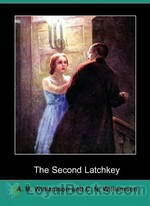 The Second Latchkey
The Second Latchkey
Jewelry thefts, society parties, clairvoyance, and romance marks this mystery, which is set in England and the US in the early 20th century. | |
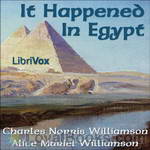 It Happened In Egypt
It Happened In Egypt
Lord Ernest Borrow and Captain Anthony Fenton think they know a secret – a secret that could make them both rich. En route, they are sidetracked by Sir Marcus Antonius Lark, a woman who thinks she’s Cleopatra reincarnate, a Gilded Rose of an American Heiress, and Mrs. Jones, a mysterious Irish woman with a past. Will they find the secret? Or will the trip up the Nile on the Enchantress Isis net them another discovery altogether? | |
By: Alfred J. Church (1829-1912) | |
|---|---|
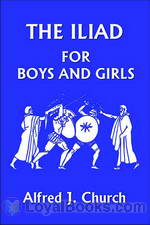 The Iliad for Boys and Girls
The Iliad for Boys and Girls
Echoing Homer’s epic poem The Iliad, Church offers a simplified rendering of the classic siege of Troy, as he retells the story which is regarded as one of the greatest masterpieces of Western literature. The Iliad for Boys and Girls is written in an easy to follow style that is certain to provide clarity to the otherwise perplexing tale presented in Homer’s original. Furthermore, the tale explores various themes including the destructive nature of pride, grueling revenge, honor, and the capricious interference of the Ancient Greek gods in temporal affairs... | |
By: Omar Khayyám (1048-1131) | |
|---|---|
 The Rubaiyat of Omar Khayyam
The Rubaiyat of Omar Khayyam
The Rubáiyát of Omar Khayyám (Persian: رباعیات عمر خیام) is the title that Edward Fitz-Gerald gave to his translation of a selection of poems, originally written in Persian and of which there are about a thousand, attributed to Omar Khayyám (1048–1131), a Persian poet, mathematician and astronomer. A Persian ruba'i is a two-line stanza with two parts (or hemis-techs) per line, hence the word "Rubáiyát" (derived from the Arabic root word for "four"), meaning "quatrains". | |
By: Lewis Hodus (1872-1949) | |
|---|---|
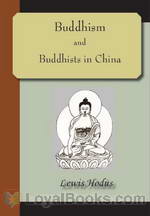 Buddhism and Buddhists in China
Buddhism and Buddhists in China
Buddhism and Buddhists in China is an anthropological text describing Buddhism as practiced in China at the beginning of the 20th Century. Interestingly, it also compares and contrasts Buddhism with Christianity with respect to or in response to missionary work. | |
By: Meredith Nicholson (1866-1947) | |
|---|---|
 The House of a Thousand Candles
The House of a Thousand Candles
A reputedly wealthy and eccentric old man dies in Vermont. His home, the House of a Thousand Candles, so called for the owner's preference to candle light, is left empty save a faithful servant -- his fortune mysteriously vanished, though rumored to still have been hidden in the house somewhere. John Glenarm, the late old man's grandson, stands to inherit the estate (and so the secret fortune) under the stipulation that he live in the house for one year. If he fails, the house will be forfeited and awarded to Marian Devereaux, the niece of the nun who operates the nearby Saint Agatha's School for girls... | |